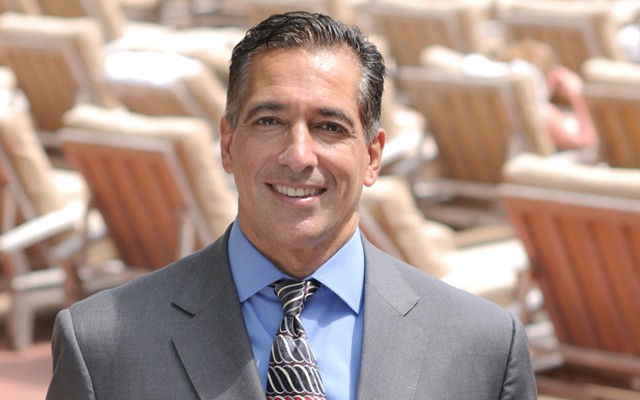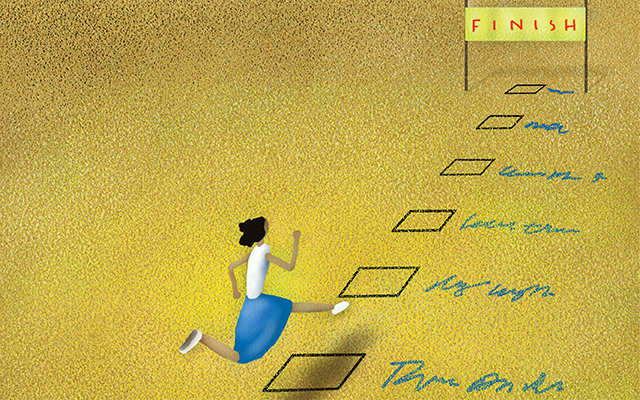Tell me what is important to you. OK, now, what’s really important?
It’s a tough question. Most of us have a lengthy list of people, projects, and priorities that matter mightily to us. And to some extent, the richer our lives, the more of those priorities that will be jostling for attention at any given time.
That can be a huge source of stress. It’s fine to care a lot about a lot of things — family, friends, partnerships, work, community, creative pursuits, causes. But it’s also essential to recognize that you can’t really focus on more than one or two big areas at any given time. And you can’t really accomplish more than one task in any given moment.
Productivity guru Merlin Mann has a great line to this effect: “True priorities are like arms,” he says. “If you think you have more than a couple, you’re either lying or crazy.”
“True priorities are like arms,” he says. “If you think you have more than a couple, you’re either lying or crazy.”
Mann’s work — in the tradition of Stephen Covey’s 7 Habits and David Allen’s Getting Things Done — is focused on helping people find the time and attention to focus on what really matters to them.
Mann is the originator of Inbox Zero, an email-taming concept, and the founder of 43Folders.com, a collection of tools and resources designed to help people manage information, tasks, and priorities.
Many of his projects address the fact that most of us expend too much of our time, attention, and life energy battling time-sucks like email, meetings, and procrastination. We wind up doing those things at the expense of the ones we really want and need to do more.
The chaos of warring priorities is undoubtedly one of the greatest stresses most of us experience day to day and year to year. Feeling responsible for something and yet helpless to adequately control it is, in fact, a common definition of stress.
So how can we get better at living our tiptop priorities, and at keeping distractions at bay? Here are a few of the suggestions I’ve found most useful in my own life.
1. Connect with your bigger “whys.” If you’re not clear about the values and purpose that direct your life choices, accomplishing more numerous “whats” and more efficient “hows” is never going to be all that satisfying.
2. Take the long view. When you look back on your life from your deathbed, what accomplishments and experiences do you want to be able to reflect on and celebrate? What’s your plan for making those things happen?
3. Identify two areas of your life where you are committed to being great. For me, that’s purpose-centered work, and family. Lots of other things matter to me, but when I’m faced with tough choices, my top-two priorities always come first.
4. Have just one or two big goals in circulation at any time. Reflect on how well those goals are currently represented on your calendar. If you aren’t regularly allotting significant, dedicated time and energy to them, they probably aren’t happening.
5. Aim for incremental daily progress. Ask yourself this two-part question often — especially when you’re feeling distracted or overwhelmed: A) What is the best strategy for moving my goal forward? B) What is the next practical step — a thing I can do right now?
6. Once you’ve identified your next essential task, accomplish it as quickly as possible. Quite likely, you’ll have to do this at the expense of some other task on your list. It may mean renegotiating a less important commitment. That’s OK. Remember, ultimately, your life is going to be a reflection of how you chose to spend your time and energy, period.
7. Understand the concept of “opportunity cost.” Unless you are one of those rare people with too much time on their hands, saying yes to one thing will necessarily mean saying no to others. That doesn’t mean you can’t embrace new opportunities. It just means taking stock of the sacrifices they involve.
Unless you are one of those rare people with too much time on their hands, saying yes to one thing will necessarily mean saying no to others.
Finally, if you have trouble staying on track with these recommendations, notice where your commitment is being undermined or siphoned off. Do you have a hard time setting boundaries or saying no? Is some huge worry weighing on you? Are your physical health and energy less than optimal?
If so, consider moving that obstacle to the top of your priority list for a time. Whatever is dulling you or significantly diminishing your capacity, the sooner you deal with it, the sooner you can get back to pursuing your highest goals with gusto.




This Post Has 0 Comments